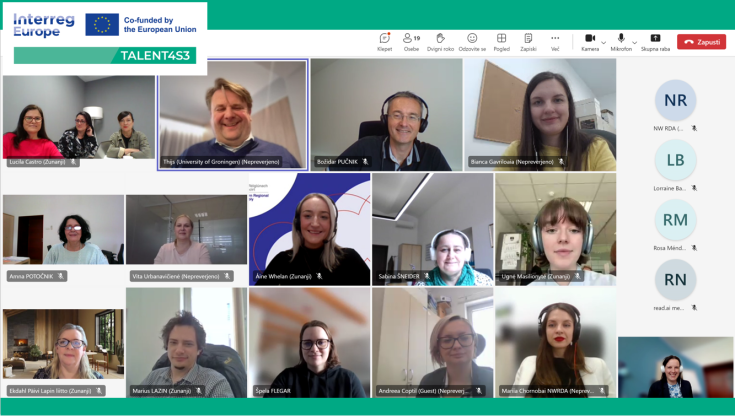The TALENT4S3 project, led by FUNDECYT-PCTEX and with a budget of 1.8 million euros, will run until June 2028 and brings together public administrations, academia and the private sector to improve and exchange public policies internationally to attract and retain R&D talent.
The Foundation FUNDECYT Scientific and Technological Park of Extremadura, together with European partners, has successfully launched the interregional project «Retention and attraction of TALENT for a better deployment of Smart Specialisation Strategies.»
The Interreg Europe program, within which TALENT4S3 was recognized as one of the key projects to address the challenges of demographic changes and the consequent reduced competitiveness of the European economy, offers local and regional authorities the opportunity to analyse and compare various measures and instruments that regions have developed or are still developing. How to transfer best practices to Extremadura and appropriately reshape the RIS3 Extremadura 2027 not only to follow the Strategy for Smart Specialization (S3) but also to inspire the implementation of smart specialization in other regions, is one of the key goals of knowledge and data-driven development projects outlined for the next four years at FUNDECYT-PCTEX.
Within the Smart Specialisation Stategy in Extremadura, covers the fields of agri-food, health and wellness, culture and tourism, ecological transition, digital transformation, innovation and development, sectors in which TALENT4S3 is expected to contribute positively to the generation of quality jobs and the promotion of innovation in the Extremadura region.
As a result, it is expected that around 70 organisations from the countries participating in TALENT4S3 will establish international collaboration pathways, and more than 50 will increase their capacity to attract highly qualified talent in their territories, as well as improve at least 7 policy instruments that help public administrations in this field.
To achieve this, during the course of the project, analyses and reports will be carried out on existing public policies both in Extremadura and in the participating regions of Italy, Lithuania, Slovenia, Finland, Romania, Ireland and the Netherlands.

